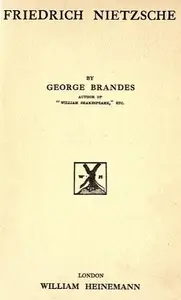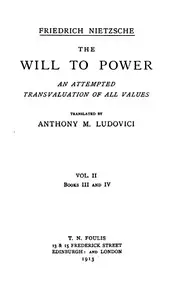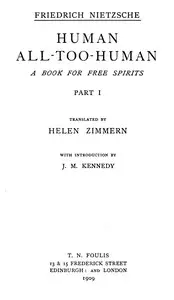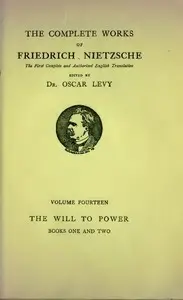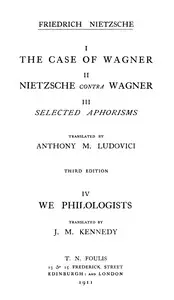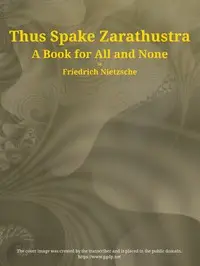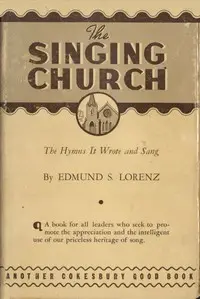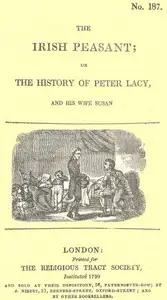"Human, All-Too-Human: A Book for Free Spirits, Part 2" by Friedrich Nietzsche is a collection of philosophical reflections from the late 1800s that examines what makes people tick, how they feel, and the big ideas that shape how they see the world. Nietzsche wants readers discover truths about knowledge, morals, and life. The book starts with an introduction that sets the stage for Nietzsche’s ideas, as he stresses the value of learning from your own experiences and letting go of old, disappointing beliefs. The book touches on feelings, critiques of culture, wisdom about life, and philosophy, pointing to his move away from dreamy ideas toward a more practical way of looking at life and self-discovery.

Human, All-Too-Human: A Book for Free Spirits, Part 2
By Friedrich Wilhelm Nietzsche
Embark on a journey of self-discovery and confront uncomfortable truths about humanity, culture, and the very essence of existence.
Summary
About the AuthorFriedrich Wilhelm Nietzsche was a German classical scholar, philosopher, and critic of culture, who became one of the most influential of all modern thinkers. He began his career as a classical philologist before turning to philosophy. He became the youngest person to hold the Chair of Classical Philology at the University of Basel in Switzerland in 1869, at the age of 24, but resigned in 1879 due to health problems that plagued him most of his life; he completed much of his core writing in the following decade. In 1889, at age 44, he suffered a collapse and afterward a complete loss of his mental faculties, with paralysis and probably vascular dementia. He lived his remaining years in the care of his mother until her death in 1897, and then with his sister Elisabeth Förster-Nietzsche. Nietzsche died in 1900, after experiencing pneumonia and multiple strokes.
Friedrich Wilhelm Nietzsche was a German classical scholar, philosopher, and critic of culture, who became one of the most influential of all modern thinkers. He began his career as a classical philologist before turning to philosophy. He became the youngest person to hold the Chair of Classical Philology at the University of Basel in Switzerland in 1869, at the age of 24, but resigned in 1879 due to health problems that plagued him most of his life; he completed much of his core writing in the following decade. In 1889, at age 44, he suffered a collapse and afterward a complete loss of his mental faculties, with paralysis and probably vascular dementia. He lived his remaining years in the care of his mother until her death in 1897, and then with his sister Elisabeth Förster-Nietzsche. Nietzsche died in 1900, after experiencing pneumonia and multiple strokes.


